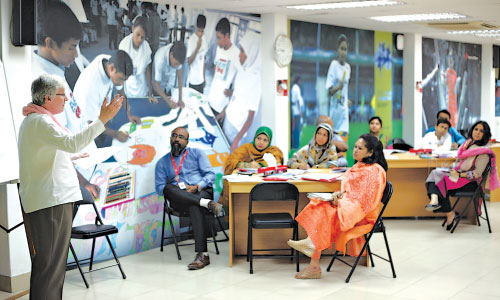Law sought to end corporal punishment of children
Bangladesh needed to enact a comprehensive law for total prohibition of corporal punishment inflicted on children by all including family members, experts said on Tuesday.
‘Drafting a comprehensive legislation is essential’ for total prohibition of corporal punishment,’ Sharon Owen, coordinator of Global Initiative to End All Corporal Punishment of Children, said at a workshop organised by Save the Children in Dhaka.
Legislation would be the beginning, she said, as everything would not be achieved overnight and reaching people in remote areas would be challenging.
Dominique Pierre Plateau, Asia representative of child protection initiative, and Laila Khondkar, director, child protection, of Save the Children, among others, participated in the discussion.
They said corporal punishment ‘is lawful’ at home in Bangladesh, although the government expressed its commitment in different regional and international forums to prohibiting all corporal forms of such punishment, including at home.
In a ruling served in 2011, the High Court stated that all laws authorising whipping or caning of children should be immediately repealed.
The Children Act, 2013, which replaced the Children Act, 1974, failed to comply with the HC ruling, experts observed.
This ruling should be confirmed through the enactment of legislation clearly prohibiting such punishment in all educational settings, the experts stated.
In reporting to the Committee on the Rights of the Child in 2015, the government noted that a number of legislative measures were still being developed.
The provisions in the Code of Criminal Procedure, the Whipping Act, the Railways Act, the Penal Code and the Prisons Act, 1894, regarding corporal punishment should be repealed to ensure there would be no legal provision that could be construed as providing a legal defence for the infliction of such punishment, they said citing the acts.
A 2015 survey involving 24 government primary schools in eight unions in Bangladesh found a drop in the prevalence of school corporal punishment from 79 per cent in 2013 to 53 per cent in 2015. The acceptability, however, among guardians of corporal punishment at schools was high at 95 per cent in 2015.
GIEACPC summarised over 250 studies done globally over corporal punishment. It showed corporal punishment causes direct physical harm to children, impacts negatively on their mental health and physical health and education. Far from teaching children how to behave, it impairs more internalisation, increase antisocial behaviour and damages family relationship. It increases aggression in children and increases likelihood of perpetrating and experiencing violence as an adult.
A special progress report prepared for the high-level intergovernmental conference in June [2016] in Vienna showed only 49, out of over 200, UN member countries, mostly in Europe and Africa, enacted laws prohibiting corporal punishment. Fifty-four countries, including Afghanistan, Bangladesh, Bhutan, India, Nepan, Pakistan, South Africa, Sri Lanka, Thailand, have made commitments for prohibition.
News Courtesy: www.newagebd.net











